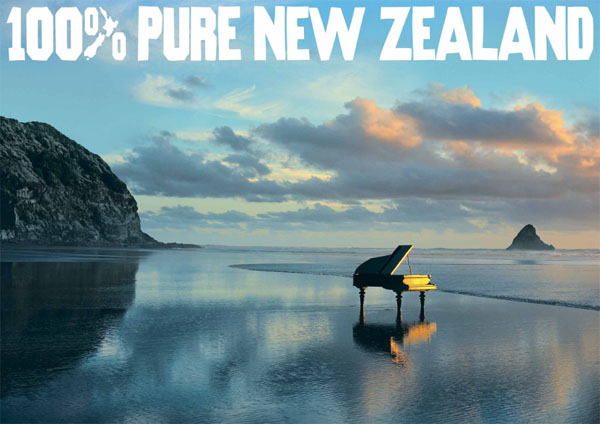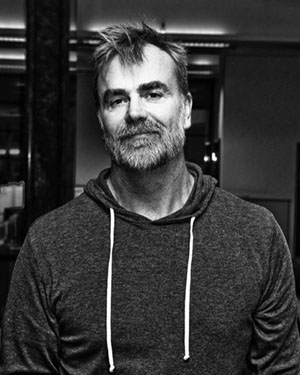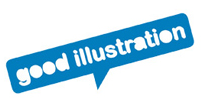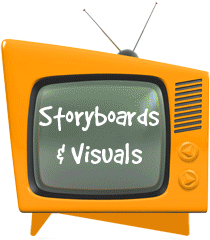Talk us through your background, how did your career in advertising begin?
I rather fell into advertising. My ambition at school was to be the next Jacques Cousteau rather than Bill Bernbach. Perhaps if I’d studied marine biology somewhere more exotic than Southampton that’s what would have happened. But I didn’t, and it didn’t.
After attempting a Masters at Cambridge, I realized I wasn’t going to become an academic either so I turned to drink, selling the stuff for Oddbins. There I discovered the joys of copywriting as every bin card was penned by the shop staff. I also discovered the appeal of Australian wine (and one Australian woman in particular). Two years later, I was working in a Yarra Valley winery just outside Melbourne and had decided I was now going to become a winemaker. However, my girlfriend (the one Australian woman in particular) started working at Clemenger BBDO where I met all these exciting people, many of whom drove Porsches instead of tractors, so I started wondering if that would be better. In the end fate decided; I found out I’d got into an advertising course before I heard about the winemaking degree. But my wine connections got me into my first job. I was selling wine wholesale at this stage and my best customer’s girlfriend was head of TV at McCanns. She told me they were looking for a junior writer. She told them that other agencies were looking at me (thank you Anne).
Maurice Saatchi believes ‘Brutal simplicity of thought is a painful necessity.’ Can you elaborate on this idea and talk about your own creative philosophy.
As the media landscape becomes more fragmented and the power of social networks continues to increase, Brutal simplicity of thought has never been more of a painful necessity. The challenge is that the model looks really simple too, so people don’t realize the necessary intellectual rigour required to do it justice. It’s a bit like a light sabre. In the hands of a Jedi it’s unbeatable, but an Ewok wielding one wouldn’t have the same impact.
I like simple ideas, but I abhor simplistic ones. Most TV commercials are shit because they treat their audience like idiots, aiming at the lowest level. Paradoxically, the TV shows they inhabit have never been more thought provoking. You can say the same of print. Online is a bit more interesting, there’s an acceptance you have to capture your audience’s imagination for it to work.
There ought to be a social contract between advertisers and the public. We’re interrupting them and if we can’t make it worth their while, we should at least make it engaging.
How is the creative team structured at M&C Saatchi and what does their physical workspace look like?
This is a continual work in progress. Fifty people is a big department, on top of that there’s digital production, which in some ways belongs in creative. We’ve tried a number of things over the years (I had one plan based on the US Marines) one of the best of which was to put the digital production guys on the same floor as writers and art directors. The latest structure has three autonomous creative groups, each with a Head of Art, Copy and Code looking after 15 people. Big enough to handle a big account, small enough to help each other and nurture the juniors.
The workspace is a bit of a challenge. We occupy an incredibly cool Deco building on Macquarie Street. However, it’s a listed building so we can’t alter it in any significant way. It’s open plan with people arranged in pods of six. The pods work well, but being open plan you see a lot of headphones which is a bit isolating.
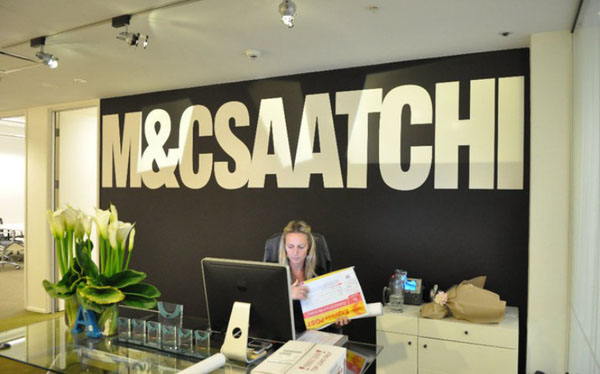
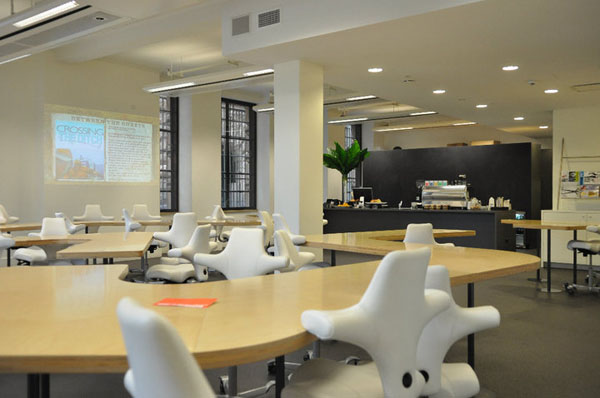
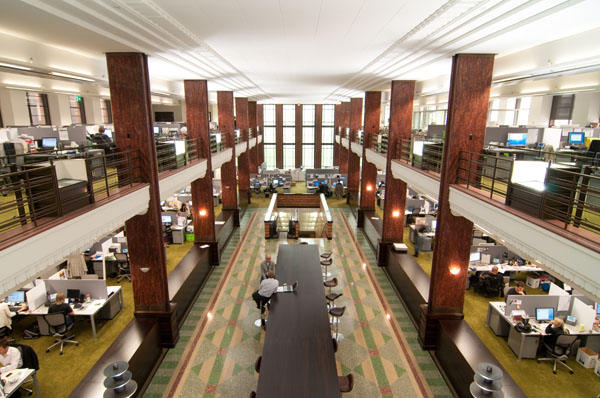
During your career, you have won a plethora of Australian and international awards at Cannes Lions, D&AD, AdFest, The One Show and Caples and have also been selected to judge at the 2013 Cannes Lions International Festival of Creativity. What key ingredients does a campaign need in order to achieve excellence in creative communications?
I wish I knew the exact formula. Simple, charming and original would feature in it somewhere. Craft is absolutely essential. I think the best work seduces its audience, be it a panel of judges or the real world. You just can’t help loving it and wishing you had done it.
Who is the most stimulating creative you have ever worked with in your career?
I don’t have a most stimulating individual. Stimulation comes from all around. I find the energy and hopeless optimism of junior teams inspiring, the wisdom of wiser (often not older) colleagues essential and the cornucopia of production partners refreshing.
I find places stimulating. I’ve loved those occasions when I’ve been working in another country or for another country. The blinkers come off, you can do anything. Nothing is wrong.
Which methods/techniques do you use when approaching a new brief?
It’s pretty random. I usually start with a pen and pad. I’ll draw, write, scribble and chat. Most great ideas aren’t to be found at work though. I think water helps. I won’t go anywhere near the internet till I have an idea. You can’t see great ideas coming, they lie just outside our peripheral vision, so sometimes you encounter one when you are focusing on another.
Which ads would you select to go into the ‘all-time greats’ hall of fame?
I think there are enough in there already. But if it isn’t there I’d like to nominate a recruitment poster from World War 1. A father sits on his comfy armchair with one child at his feet and another on his lap. He looks pensive, trying to answer the question “Daddy, what did YOU do in the great war?”
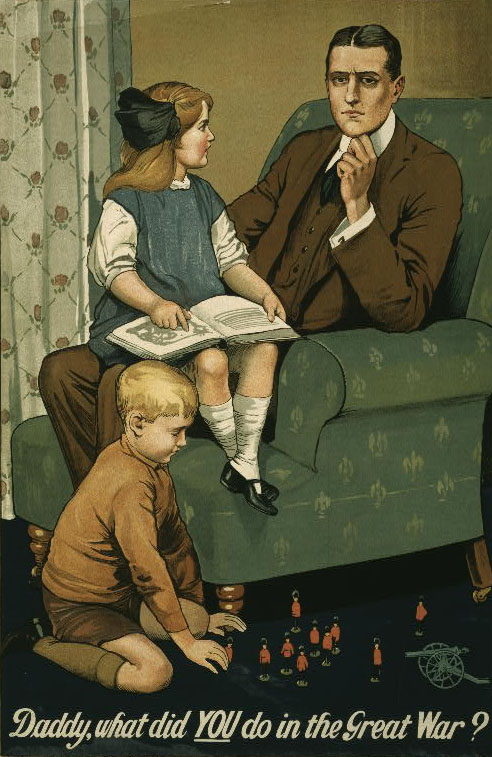
How do you feel about the ads you created a decade or more ago?
I was looking at an old D&AD annual the other day and shaking my head at some of the work. It seemed dated, but then so do shoulder pads and perms and they were considered awesome once.
What do you think of the standard of TV ads today?
I’ve talked about this earlier. Woeful, depressing. The fact was reinforced at Cannes this year. Before the film lions began they played some of the best of the past. It cast a dark shadow on today’s work. The best is still brilliant, there just isn’t as much as there used to be.
What is the most engaging creative brief you have ever been set by a client?
New Zealand. Selling a country is pretty cool. The idea we did is still in use, 14 years on.
